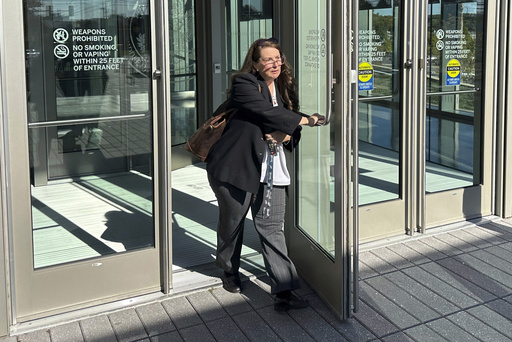
HARRISBURG, Pa. — During a hearing on Friday, a federal judge posed a series of critical inquiries regarding a lawsuit aimed at prompting Pennsylvania election officials to enhance verification processes for ballots cast by military personnel and citizens residing abroad. Although U.S. District Judge Christopher Conner engaged deeply with the arguments, he refrained from issuing an immediate ruling on the matter.
The case has garnered attention, particularly as it involves the scrutiny of thousands of ballots in Pennsylvania—an essential battleground state that may play a crucial role in the upcoming presidential election between Vice President Kamala Harris and former President Donald Trump. The judge specifically challenged a lawyer representing six Republican Congress members and a conservative voting group who were part of the lawsuit, correcting him when he referred to the case as “pedestrian.” Conner described the nature of the lawsuit as “creative” during the nearly two-hour oral arguments.
The plaintiffs, which include six Republican members of Congress and the group PA Fair Elections, are calling for an official declaration that the current voting procedures contradict federal law. In particular, they are focused on how to ensure that the identities and eligibility of those voting from overseas are verified as per the requirements of the U.S. Uniformed and Overseas Citizens Absentee Voting Act. They also seek to have military and overseas ballots set aside during the current election until enhanced verification measures are implemented.
After the hearing, Kate Marsh Lord, the communications director for Secure Families Initiative—a group representing around 10,000 military spouses and family members—expressed her frustration. She stated, “It’s insulting that there had to be an argument about whether or not our votes should be set aside or counted.”
The lawsuit is spearheaded by Heather Honey, an election researcher whose investigations have previously been cited in right-wing critiques of voting methods. Alongside her, the Republican plaintiffs include Reps. Guy Reschenthaler, Dan Meuser, G.T. Thompson, Lloyd Smucker, Mike Kelly, and Scott Perry. Responding to the ongoing legal battle, U.S. Rep. Chrissy Houlahan, a Democrat and Air Force veteran, criticized the lawsuit as part of a broader scheme to undermine public confidence in U.S. elections, emphasizing that the Congress members should know better given their backgrounds.
In defense of the lawsuit’s motivation, attorney Erick Kaardal voiced concerns that without the proposed verification measures, the risk of counting invalid votes might increase. He accused election officials of enforcing participation in an “illegal structure.” However, this lawsuit does not assert that absentee ballots from military or overseas voters have a history of fraud or significant issues.
Opposing these claims, Thomas Howell from the office of Democratic Governor Josh Shapiro stated that the plaintiffs’ argument that valid votes could be compromised by improper ones does not provide adequate grounds for judicial intervention. Howell suggested that what they seek resembles an advisory opinion, which is not within the scope of what the court can provide.
Representing the Secretary of State Al Schmidt and top election official Jonathan Marks, Howell’s legal team noted that federal regulations exempt overseas voters from the identification mandates imposed on others and criticized the timeliness of the lawsuit, particularly as Election Day approaches, less than three weeks away.
“The plaintiffs proffer no excuse for their delay,” the state officials’ lawyers asserted, adding that more than 25,000 overseas ballots had already been dispatched to voters. The political landscape indicates a notable trend where military voters tend to affiliate more with the Republican Party, while the general overseas voter demographic leans Democratic. The Democratic Party is actively investing in initiatives this year to enhance engagement and turnout among these voters.
